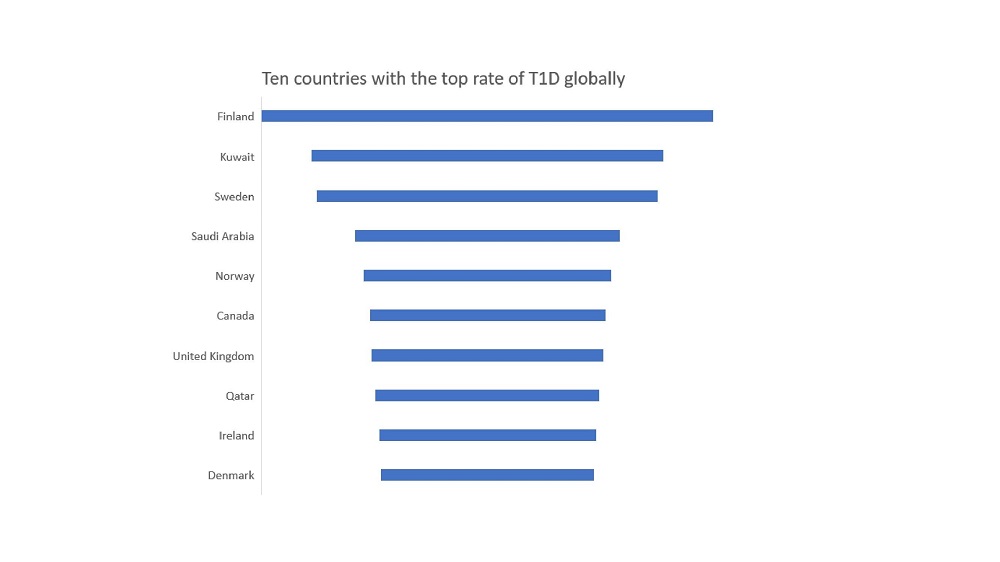The incidence of Type 1 Diabetes (T1D) in the Arab world, particularly, oil and gas rich Gulf Cooperative Council (GCC) countries has more than doubled in the last twenty years. Therefore, there is a dire need for careful systematic familial cohort studies, especially in high-risk populations. Several immunogenetic factors affect the pathogenesis of the disease. Genes in the human leukocyte antigen (HLA) account for the major genetic susceptibility to the disease. The triggering agents initiate disease onset by destruction of pancreatic β-cells. The autoantibodies against glutamic acid decarboxylase (GADA), insulinoma antigen-2 (IA-2A), insulin (IAA), and zinc transporter-8 (ZnT-8A) comprise the most reliable biomarkers for T1D in both children and adults. Although three of the GCC countries, namely Kuwait, Saudi Arabia and Qatar are among the top 10 countries with high incidence rate of T1D, no proper diagnostic and prediction tools were applied in the region. Understanding the disease sequelae in a homogenous gene pool with high consanguinity in the GCC could help solve the challenges in understanding pathogenesis, as well as hasten the prevention of T1D. Arab states must incorporate T1D predictive and intervention policies on a war-footing basis to minimize the burden of this serious disease.

